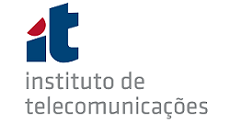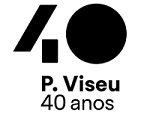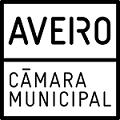EAI GOODTECHS 2021 will be held as a fully-fledged online conference in Zoom.
Get the same full publication and indexing, enjoy EAI’s fair evaluation and recognition, present your paper to a global audience,
and experience virtual meetings live as well as on-demand from the safety and comfort of your home.
Due to the safety concerns and travel restrictions caused by COVID-19, EAI GoodTechs 2021 will take place online in a live stream.
Participants will still be able to enjoy unique interactive benefits – learn more.
September 15-17, 2021
Aveiro, Portugal (Online)
GOODTECHS authors have enjoyed
over 62.000 downloads
Registration is now open!
Camera-Ready deadline extended till 22 August!




Participate online and join the conference
from wherever you are!
Get the same full publication and indexing, enjoy EAI’s fair evaluation and recognition, present your paper to a global audience, and experience virtual meetings live as well as
on-demand from the safety and comfort of your home.
Although we will miss having everyone meet and connect in person, we feel strongly that knowledge exchange must continue, if not more so. That is why we have equipped our online conferences with live viewing with chat, virtual Q&A, and a multitude of other measures to provide you with a great experience.
Find out what EAI conference live streams look like and discover unique benefits
that online participation brings you - learn more.
with EAI Index:
Find out more about EAI Index
Registration is open! Register now!Take a look back at the previous edition of GOODTECHS here.GOODTECHS 2021 supports revolutionary EAI Community Review, find out more here.Every author receives EAI Index credits – regardless of acceptance. Learn more about EAI’s Recognition Program here.Get real feedback on your presentation from other registrants via EAI Compass.
Welcome to the EAI Community
Let the EAI Community help you build your career with collaborative research, objective evaluation, and fair recognition:
- Extra visibility for your paper and fair review → Community Review
- Get credits to receive membership ranks and global recognition → EAI Index
- Real-time evaluation and feedback on your presentation on-site → EAI Compass
Proceedings
Update: Proceedings have been published in SpringerLink Digital Library.
Publication
All registered papers will be submitted for publishing by Springer and made available through SpringerLink Digital Library.
Proceedings will be submitted for inclusion in leading indexing services, such as Web of Science, EI Engineering Index (Compendex and Inspec databases), DBLP, EU Digital Library, Google Scholar, IO-Port, MathSciNet, Scopus, Zentralblatt MATH.
Authors of selected best accepted and presented papers will be invited to submit an extended version to:
- Mobile Networks and Applications (MONET) Journal (IF: 2.602)
- Information and Communication Technologies for Social Good and Healthcare
- Data Privacy, Security, and Trust in New Technological Trends
- Artificial Intelligence of Things (AIoT) for 5G Communication Networks
- EAI Endorsed Transactions on Pervasive Health and Technology (Open Access) – indexed in Scopus & Ei Compendex
All accepted authors are eligible to submit an extended version in a fast track of:
- EAI Endorsed Transactions on Smart Cities (Open Access)
Additional publication opportunities:
- EAI/Springer Innovations in Communications and Computing Book Series
- MDPI’s Future Internet – Special issue “Smart Objects and Technologies for Social Good” – open access journal indexed within Scopus, ESCI (Web of Science), and Ei Compendex
Topics
- App concepts and technologies for different mobile platforms
- Blockchain for social good
- Communication between mobile devices
- Content Distribution
- E-learning solutions
- Data collection, organization and dissemination methods
- Delay-tolerant aerial networks and ferrying approaches
- Deployment and field-testing
- Digital tools for art and feelings
- Environment sensing, monitoring and preservation
- Virtual Games, entertainment, and multimedia applications
- Health and social care
- Human-object interaction
- ICT for development
- Mobile service architectures and frameworks
- Mobility and handover management
- New application scenarios for vehicular communications
- Pervasive and ubiquitous services in cloud and IoT
- Platforms and framework for mobile devices
- Privacy issues and solutions
- Protocol design, testing and verification
- Security issues, architectures and solutions
- Smart cities and transportation
- Smart economy solutions: e-banking, e-business
- Smart governance and e-administration
- Smart living and E-health
- Technology addressing the digital divide
- Health care information systems interoperability, security and efficiency
- Ambient intelligence for well-being and e-health applications, supported by RFID technology and Wireless Sensor Networks
- Mobile applications and ubiquitous devices in Healthcare and lifestyle training
- Robotic systems and devices for health care and medicine
- Technologies to promote a healthy and secure society
- Big Data Analytics for e-health
- Assessment of Acceptance/Adoption models Cultural Evaluation of e-health
- Acceptance e-health and economic growth Factors affecting e-health adoption
- Machine learning for healthcare
- Intelligent systems for young and older adults using mobile devices
- Human factors, efficient cost control and management in society
- Intelligent decision support and data systems in health care, medicine and society
- Innovation in people supporting activities (e.g. health care, schooling and services)
- Embedded systems for healthcare
- IT Acceptance Models Acceptance of e-health services
- Major barriers and facilitators for e-health
- Bio signal Acquisition, Analysis and Processing
- Semantic Technologies and Cognition
- Physiological Computing in Mobile Devices
- Telemedicine;
- Augmented Reality in Healthcare using Wearable devices
- Sensors and Actuators
- Cloud computing for healthcare
- Mobile application concepts and technologies for different mobile platforms
- Cyber-physical systems and real-time data collection for social good
- Machine learning applications for social good
About GOODTECHS 2021
Social goods are products and services that could be provided through private enterprises, government or non-profit institutions. It will benefit several people with special needs, including older adults, the performance of sports, and young people. Social goods are related to healthcare, safety, sports, environment, democracy, computer science, and human rights.
Sensors may be included in the development of solutions for social good that promote the support of different physical activities, air quality, temperature. The current pandemic scenario associated with the dispersion of coronavirus over the world highlights the critical role of sensors that can support the control and treatment of different diseases. The use of computer science technologies will support multiple cross-domain fields. Mobile devices include different types of sensors. These sensorial units include accelerometer, magnetometer, gyroscope, microphone, and Global Positioning System (GPS) receiver. These sensors can be used to create numerous solutions to promote social good. Also, smart environments include multiple types of sensors such as door sensors, contact sensors, motion sensors, and light sensors. The sensors can promote the recognition of different parameters. Furthermore, mobile devices are widely used, such as smartphone, tablets, and smartwatches. Mobile devices have different capabilities for the improvement of the results of Social Good solutions. The accuracy and statistical analysis of these systems are essential for their acceptance.
Human-Computer interaction and social networks help in the creation of diverse solutions and opportunities for the different types of people. The different environments can use some various technologies and architectures. Low-cost sensors can be used for the monitoring of different kinds of people, including electroencephalography, electrocardiography, and electromyography.
Sensorial systems promote the creation of medical solutions that supports the preliminary diagnosis of various diseases. Furthermore, the Internet of Things, Smart-cities, distributed sensing and Fog computing are representative examples of new information and communication technologies (ICT) paradigms that aim to describe a dynamic and globally cooperative infrastructure built upon objects’ intelligence and self-configuring capabilities. These connected objects are finding their way into our pockets, vehicles, urban areas and infrastructure.
The use of mobile devices is growing in different daily activities, and their use started in young people. Still, older adults are now using this type of devices. Technological tools are widely improving, and they include different sensors, which can acquire different physical and physiological data. The development of these systems is involved in the development of ICT technologies for well-being. Besides, the e-Health and m-Health solutions may not act only in the treatment and monitoring stages of different diseases.
Moreover, it can act as preventive, promoting healthy lifestyles and active coaching to avoid unhealthy habits. There are various solutions currently under development related to this field. These solutions can improve our quality of life and be used to the design and development of novel technologies for social help. It is a multidisciplinary and extensive subject for public health well-being. Additionally, Internet of Things applications provide a continuous stream of data collected in real-time. The data collected can be combined with machine learning methods to predict unexpected events in the context of a smart city. These cyber-physical systems are intelligent objects that can be the basis to develop enhanced technologies for social good.
In the GOODTECHS conference, we are hence interested in experiences with the design, implementation, deployment, operation and evaluation of smart objects and technologies for social good. We are not considering only the so-called first world as the scenario for this evolution. We also refer to those areas where ICT is currently less widespread, hoping that it may represent a societal development opportunity rather than a source for further divide.
About EAI
This event is organized by EAI.
EAI – European Alliance for Innovation is a non-profit organization and a professional community established in cooperation with the European Commission to empower the global research and innovation, and to promote cooperation between European and International ICT communities.
EAI’s vision is to foster excellence in research and innovation on the principles of transparency, objectivity, equality, and openness. Our guiding principle is community cooperation to create better research, provide fair recognition of excellence and transform best ideas into commercial value proposition.
EAI‘s mission is to create an environment that rewards excellence transparently, and builds recognition objectively regardless of age, economic status or country of origin, where no membership fees or closed door committees stand in the way of your research career.
Through these shared values, EAI leads the way toward advancing the world of research and innovation, empowering individuals and institutions for the good of society to fully benefit from the digital revolution.
Important dates
Late Track – Updates!
Full Paper Submission deadline
22 June 2021
Notification deadline
20 July 2021
Camera-ready deadline
15 August 2021 22 August 2021
Start of Conference
15 September 2021
End of Conference
17 September 2021
Main Track
Full Paper Submission deadline
31 May 2021
Notification deadline
1 July 2021 9 July 2021
Camera-ready deadline
9 August 2021 22 August 2021
Start of Conference
15 September 2021
End of Conference
17 September 2021
Workshop Tracks and Special Tracks
Submission deadline
14 June 2021
Notification deadline
9 July 2021
Camera-ready deadline
9 August 2021 22 August 2021
Previous GOODTECHS editions
2020 – Virtual conference
2019 – Valencia, Spain
2018 – Bologna, Italy
2017 – Pisa, Italy
2016 – Venice, Italy
2015 – Rome, Italy
Sponsors












